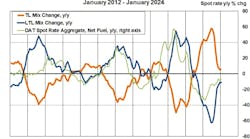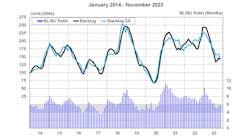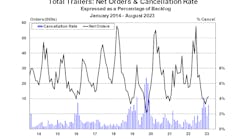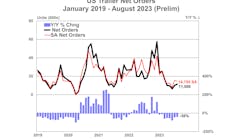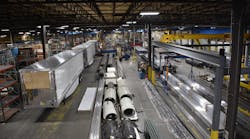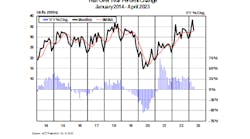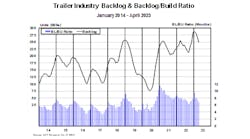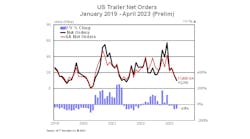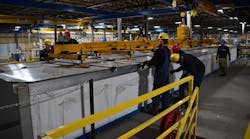Economic activity in the manufacturing sector expanded in August, and the overall economy grew for the 112th consecutive month, the nation’s supply executives said in the latest Manufacturing ISM Report On Business.
“Demand is still robust, but the nation’s employment resources and supply chains continue to struggle,” said Timothy R. Fiore, chair of the ISM Business Survey. “Respondents are again overwhelmingly concerned about tariff-related activity, including how reciprocal tariffs will impact company revenue and current manufacturing locations.
“Panelists are actively evaluating how to respond to these business changes, given the uncertainty.”
The August PMI registered 61.3 percent, an increase of 3.2 percentage points from the July reading of 58.1 percent.
Other highlights from the report:
- The New Orders Index registered 65.1%, compared to the July reading of 60.2%.
- The Production Index registered 63.3%, compared to the July reading of 58.5%.
- The Employment Index registered 58.5%, compared to the July reading of 56.5%.
- The Supplier Deliveries Index registered 64.5%, compared to the July reading of 62.1%.
- The Inventories Index registered 55.4%, compared to the July reading of 53.3%.
- The Prices Index registered 72.1% in August, compared to the July reading of 73.2%, indicating higher raw materials prices for the 30th consecutive month.
Some challenges remain despite the mostly good news.
“Inputs … expanded strongly due to continuing supply chain inefficiencies, positive increases in inventory levels and a slight easing of imports,” Fiore said. “Lead-time extensions, steel and aluminum disruptions, supplier labor issues, and transportation difficulties continue, but at more manageable levels.”
Here are some comments selected from respondents’ responses:
-- “Busy for new orders, but the cost of raw material chemicals keeps going up.” (Chemical Products)
-- “We have seen a slight uptick in international business. Suppliers do not seem to know how to handle the recently imposed tariffs. Most are waiting to re-evaluate potential price increases until September.” (Computer & Electronic Products)
-- “Generally high levels of demand continue, and [we are] planning for this elevated rate through the rest of the year.” (Transportation Equipment)
-- “Suppliers appear to be bracing us for cost increases, given increased talk of tariffs and inflation. We are budgeting for 2019 accordingly.” (Food, Beverage & Tobacco Products)
-- “The toughest thing we deal with is the unknown. Dealing with tariffs on steel purchases and not knowing if or when they will end makes planning difficult. We are entering the period when we begin our pricing negotiations for next year and will likely treat the tariffs as if they will be here for the entire year. It’s challenging, but not insurmountable.” (Fabricated Metal Products)
-- “Business is positive, new equipment sales and inquiries are strong, and the parts business is strong. Raw material costs, especially steel, appear to be leveling off. Cost of manufactured components has also leveled off. Most suppliers are willing and able to suppress cost increases. Tariff impacts are still a concern.” (Machinery)
-- “Business continues to be strong. We anticipate growth in the next few months.” (Plastics & Rubber Products)
"Business conditions are strong. Orders are up. Purchase prices are up. Unemployment is down.” (Miscellaneous Manufacturing)
"Continued strong demand has most locations in a sold-out market, putting pressure on our facilities to produce and have strong uptime. Purchasing is under pressure to provide critical parts in a market where lead times have increased.” (Nonmetallic Mineral Products)
“Steel tariffs and their threats are putting upward pressure on downstream materials.” (Petroleum & Coal Products)
